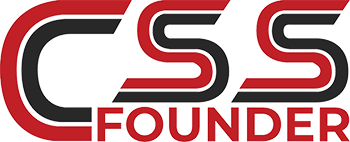When we speak about search engine optimization (SEO), keyword research, link building, Meta titles, and Meta descriptions are the first things that spring to mind. They are, without a doubt, highly vital on-page features and terms in driving organic traffic by SEO Agency in Gurgaon to your website. However, they should not be the only terms of your performance you are concerned about improving.
Where do we stand with the technical SEO terms? Your Site’s page speed, mobile optimization, and UX design matter no more negligible. While they are not directly responsible for bringing organic traffic to your website, they make it simpler for Google to scan your website and index your pages. In any case, who user would remain on your website if it loads at such a snail’s pace?
These terms, and many more besides, are included in the terms of technical SEO, which are the terms that take place behind the scenes. In addition, we will discuss everything relevant to your understanding of technical SEO and its many facets.
What Is Technical SEO?
Simply put, “technical SEO” refers to search engine optimization’s “technical” terms. It simplifies search engines’ processes to discover, crawl, and index your website. It improves your website’s rankings and exposure, in addition to the non-technical terms of SEO. Additionally, technological optimization may make navigating your website simpler for visitors, encouraging them to remain on your site for longer.
Why You Should Be Concerned About Technical SEO?
To put it another way, solid technical SEO by PromoteDial SEO Company in Gurgaon is the basis for all your other SEO operations. If you do not have it, search engines will not be able to locate your website, and you will not be included in the results of any searches.
Terms Of Technical SEO
- Website Structure
According to the best Website Designing Company in Delhi, Let’s start with the framework, shall we? It’s possible that many of you won’t consider this to be the primary factor that determines how your sites get indexed. The fact is that a poorly structured website is the root cause of many crawling and indexing troubles.
- The Architecture Of The Site
It is recommended that your website have a “flat” structure. It indicates that none of your pages should be more than a couple of links distant from one another. This will increase the likelihood that Google will crawl all of your pages and that they will be readily discovered.
- Responsive Design
According to the best Website Design Company in Bangalore, there is certainly no use in going into detail about how important it is to have a website compatible with mobile devices. It doesn’t matter whether you run an online store or a blog; your website has to be mobile-friendly to be successful.
- XML Sitemap
A sitemap is a list of all the pages included on a website. It functions as the website’s map. Google can undoubtedly locate pages by following the connections present on each page. However, sitemaps continue to be one of the essential sources when it comes to locating URLs.
- Internal Linking
While internal linking may not seem to be a component of technical SEO via SEO Agency in Gurgaon, it is nevertheless essential to bring it up in this context. If you have a flat structure, it shouldn’t be an issue. The pages far from your homepage should be three to four links deep and include connections to other sites.








